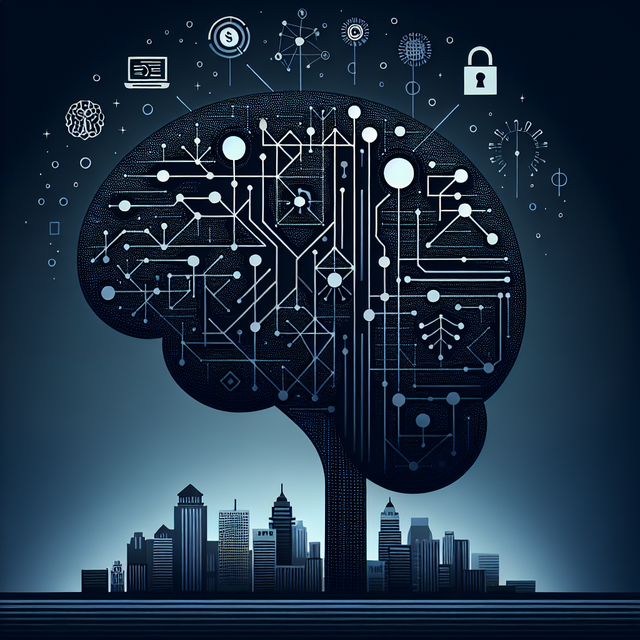
Overcoming Challenges in Enterprise AI Adoption for Software Development
In recent years, the adoption of AI-assisted software development practices has become a game-changer for enterprises looking to stay competitive in the digital landscape. However, this transformation doesn’t come without its hurdles. In this article, we’ll explore the top challenges in enterprise AI adoption for software development and provide actionable solutions to overcome them.
Table of Contents
- Understanding the AI Adoption Landscape
- Top Challenges in Enterprise AI Adoption
- Strategies to Overcome AI Adoption Challenges
- The Role of AI Development Intelligence
- Future-Proofing Your AI-Assisted Software Development
Understanding the AI Adoption Landscape
Before diving into the challenges, it’s crucial to understand the current state of AI adoption in enterprise software development. According to a recent survey by Gartner, 37% of organizations have implemented AI in some form, with an additional 42% exploring AI implementations. This rapid growth highlights the potential of AI in transforming software development processes.
Top Challenges in Enterprise AI Adoption
-
Lack of AI expertise: Many organizations struggle to find and retain talent with the necessary AI skills.
-
Data quality and availability: AI models require large amounts of high-quality data, which can be challenging to obtain and maintain.
-
Integration with existing systems: Incorporating AI into legacy systems and workflows can be complex and time-consuming.
-
Ethical and regulatory concerns: Ensuring AI compliance with industry regulations and ethical standards is a significant challenge.
-
Measuring ROI: Quantifying the return on investment for AI initiatives can be difficult, making it hard to justify continued investment.
-
Security risks: AI-generated code may introduce new security vulnerabilities that are not easily detected by traditional methods.
-
Resistance to change: Employees may be hesitant to adopt AI-assisted development practices due to fear of job displacement or lack of understanding.
-
Scalability issues: As AI initiatives grow, organizations often struggle to scale their infrastructure and processes effectively.
Strategies to Overcome AI Adoption Challenges
1. Invest in AI education and training
To address the skills gap, organizations should prioritize AI education and training for their existing workforce. This can include:
- Partnering with educational institutions to develop AI-focused curricula
- Implementing internal training programs and workshops
- Encouraging employees to pursue AI certifications
2. Implement robust data management practices
To ensure high-quality data for AI models:
- Establish clear data governance policies
- Invest in data cleansing and preparation tools
- Create a centralized data repository for easy access and management
3. Adopt a phased integration approach
When integrating AI into existing systems:
- Start with small, manageable pilot projects
- Gradually expand AI implementation based on successful outcomes
- Use API-driven architectures to facilitate easier integration
4. Prioritize ethical AI development
To address ethical and regulatory concerns:
- Establish an AI ethics committee to oversee AI initiatives
- Develop clear guidelines for responsible AI use
- Regularly audit AI systems for bias and fairness
5. Implement AI-specific metrics and KPIs
To measure ROI effectively:
- Define clear objectives for AI initiatives
- Develop metrics that capture both quantitative and qualitative benefits
- Use AI development intelligence platforms to track and analyze AI impact
6. Enhance AI security measures
To mitigate security risks:
- Implement AI-powered security tools for code analysis
- Conduct regular security audits of AI-generated code
- Develop and enforce security best practices for AI development
7. Foster a culture of AI adoption
To overcome resistance to change:
- Communicate the benefits of AI-assisted development clearly
- Involve employees in the AI adoption process
- Showcase success stories and use cases within the organization
8. Design for scalability from the start
To address scalability issues:
- Use cloud-based AI platforms for flexible resource allocation
- Implement modular AI architectures for easier scaling
- Regularly assess and optimize AI infrastructure
The Role of AI Development Intelligence
As organizations navigate these challenges, AI Development Intelligence platforms like AI Code Metrics play a crucial role in optimizing AI-assisted software development processes. These platforms offer:
- Comprehensive AI code analysis and optimization
- Strategic AI impact metrics for data-driven decision making
- Intelligent insights and reporting to track progress and ROI
- Integration with existing development tools for seamless workflows
- Collaboration features to enhance team productivity
- Built-in compliance tools for regulated industries
By leveraging AI Development Intelligence, enterprises can gain valuable insights into their AI initiatives, ensure code quality, and maximize the benefits of AI-assisted development.
Future-Proofing Your AI-Assisted Software Development
As AI continues to evolve, organizations must stay ahead of the curve to maintain their competitive edge. Here are some strategies for future-proofing your AI-assisted software development:
- Stay informed: Keep up with the latest AI trends and advancements in software development.
- Experiment continuously: Regularly test new AI tools and techniques to identify potential benefits.
- Collaborate with AI partners: Form strategic partnerships with AI vendors and research institutions.
- Emphasize adaptability: Build flexible AI systems that can easily incorporate new technologies and methodologies.
By addressing these challenges head-on and leveraging cutting-edge tools like AI Development Intelligence platforms, enterprises can successfully navigate the complexities of AI adoption in software development. The result? Improved code quality, enhanced developer productivity, and a stronger competitive position in the rapidly evolving digital landscape.
Are you ready to transform your AI-assisted software development processes? Discover how AI Code Metrics can help you overcome adoption challenges and maximize the impact of your AI initiatives. Learn more about our AI Development Intelligence platform today.